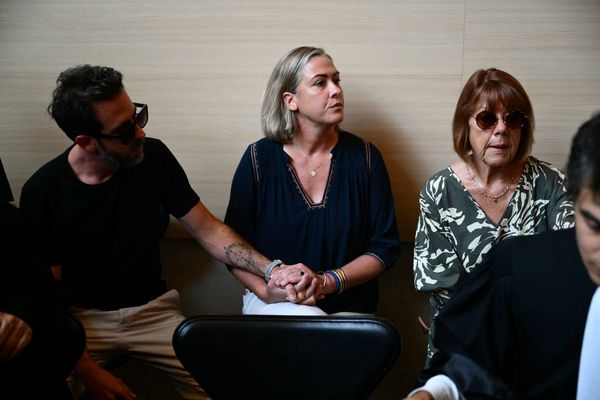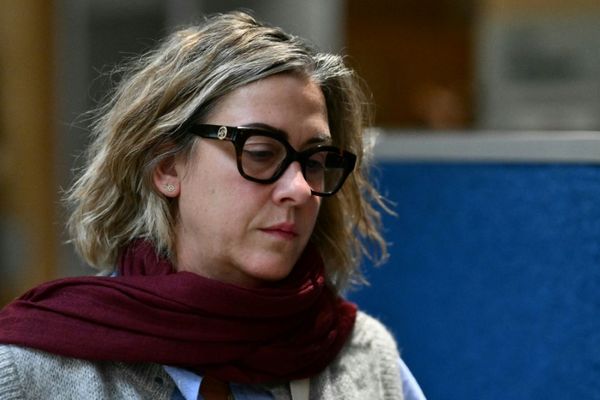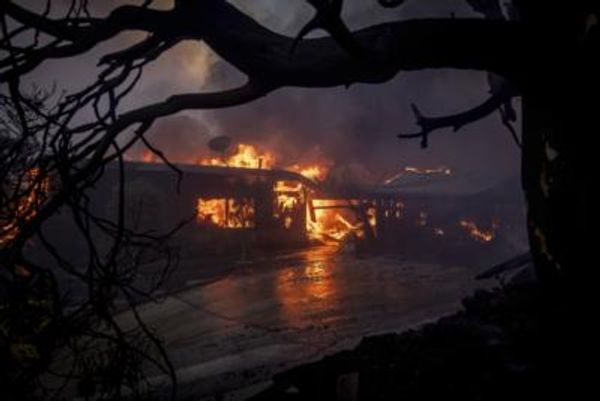
A wildly disproportionate share of the world’s politicians get their start as lawyers. That’s especially true in parliamentary systems like Australia’s, where politicians have to work their way up through the party ranks. But Australia’s new defense minister, Peter Dutton, hails from the other side of the bar. He got his start in policing—serving on the vice squad, of all places. That experience may come in handy at defense. China is a serial violator of international maritime laws, and for a maritime country like Australia, that makes dealing with China just as much of a policing problem as a national security challenge.
Australia’s most famous former police officer never really left the beat. Dutton has spent the last six years overseeing Australia’s homeland security, first as minister for immigration and border protection and then taking over the newly created portfolio of home affairs. It’s been a controversial run. The beat cop-turned-top cop has lived up to expectations, establishing a reputation for blunt comments, tough enforcement, and a tin ear for political correctness. He has also earned a reputation as the Australian government’s most outspoken China critic.
In most countries, China would be seen as the responsibility of the foreign ministry, not the home ministry, where Dutton first took on Beijing. But Australia has faced an extraordinary Chinese assault on its internal institutions. In a country that relies on China for roughly one-third of its export earnings, there are concerns that businesses, universities, and even political parties may have come under undue Chinese influence. As a result, Dutton has been dealing with China for a long time. His move to the defense ministry is perhaps a signal that the Australian government intends to start pushing back harder against China—not just at home but overseas as well.
Dutton first rose to international prominence at the end of 2014, when then-Prime Minister Tony Abbott moved him from the important but purely domestic role of minister for health to the much more internationally visible role of minister for immigration and border protection. In his new role, Dutton became Abbott’s enforcer for Operation Sovereign Borders, the Australian government’s controversial program for intercepting irregular seaborne immigrants before they reach the island country and detaining them offshore. Dutton’s predecessor in that role, Scott Morrison, is now the prime minister. Dutton may hope to similarly use the defense portfolio as a springboard for succeeding Morrison.
If so, he’s taking a chance. In the United States, defense secretary is one of the big four cabinet positions. In today’s Australia, it lacks the same prestige. The current Liberal National government in Australia has churned through six defense ministers in the last eight years. Political heavy hitters avoid the role as one that causes many managerial headaches but confers few rewards. An ongoing investigation into accusations of war crimes dating from Australia’s deployment in Afghanistan alongside U.S. troops is the kind of hot potato that few politicians care to pick up.
The last defense minister, Linda Reynolds, was shifted into the portfolios of minister for the national disability insurance scheme and minister for government services. Her double demotion may have something to do with her role in the Australian Parliament’s expanding sex, rape, and harassment scandals, but her predecessors generally fared little better. The one exception was Marise Payne, who graduated to become Australia’s current foreign affairs minister. Payne also had the longest tenure of any of the previous 10 defense ministers, lasting nearly three years in the position. To have any chance of making his mark, Dutton will have to hold the fort for a similar tenure.
His top priority will be preparing the Australian military to face a rapidly expanding China. Australia has a slew of defense modernization programs designed to address the China challenge, all of them mired in controversy: the acquisition of U.S.-made F-35 fighter jets, the building of the Hunter class future frigate, and a joint venture with France’s Naval Group to develop the diesel-electric Attack-class submarine. All three programs are wildly behind schedule, over budget, and feared likely to fall short of promised performance goals.
As if that weren’t enough of a mess, Australia has announced plans to develop a range of guided missiles to be locally made in Australia specifically for its own armed services, despite the fact that the country currently does not have a missile industry. The professed rationale for this move is the need to be self-sufficient in defense equipment in case of supply chain disruptions, but unless Australia also plans to develop the requisite electronics, advanced materials, and even propellant chemicals that go into a modern missile, this rings suspiciously hollow. Australia’s overambitious targets for defense localization threaten to transform Dutton from a defense minister into a jobs minister.
Australia’s real threat from China is more likely to come in the form of a maritime militia disguised as fishing boats than an invasion strike force targeting Darwin, Australia, with advanced weaponry. Given his experience “stopping the boats” of people smugglers (to use the government’s preferred rhetoric for immigration enforcement), Dutton has the right background for figuring out how to thwart China’s irregular gray zone tactics for expanding its hold over the region’s seas. As China’s illegal fishing fleets creep closer to Australia’s home waters, Australia should be prepared to tackle China’s “short-of-war” methods with a proportionate response of its own. Australia’s Darwin-based patrol boat squadron is likely to play a bigger role here than hypersonic missiles or stealth fighters.
Australia’s next parliamentary elections must be held no later than September 2022, and China is sure to be a major issue at the polls. Dutton may thus play a major role in determining whether or not he keeps his job for long enough to make a difference. With Australians’ sympathies for China running at an all-time low, Dutton’s tough-on-crime instincts should please domestic audiences when he applies them to China. They are less likely to please the Chinese government, which last year accused him of “ignorance and bigotry” for demanding greater coronavirus transparency. Expect more of the same. But Dutton isn’t at the foreign ministry, where playing the good cop is much of the job. He’s at defense, and bad cop is right up his alley.







